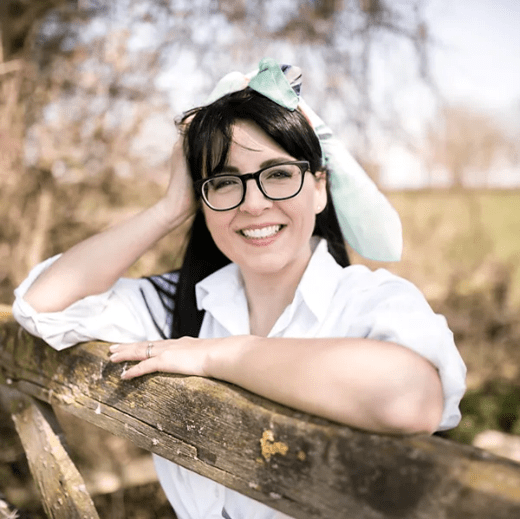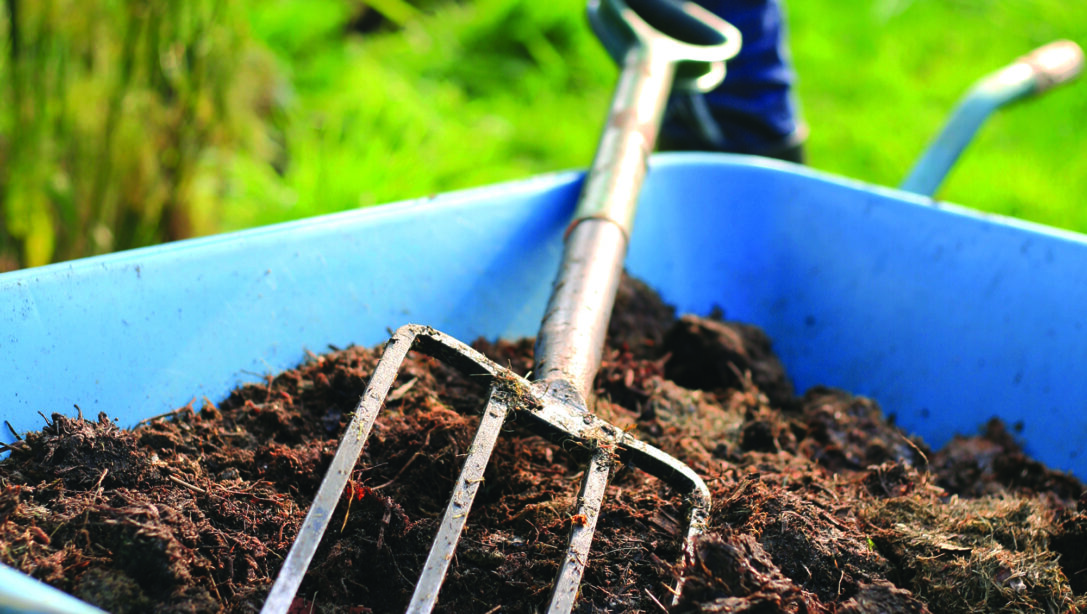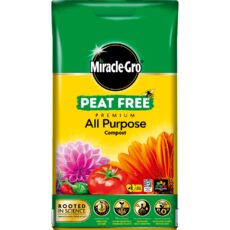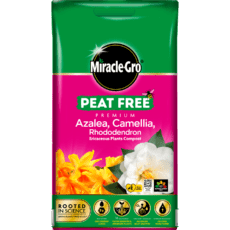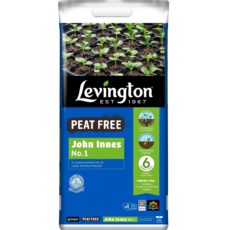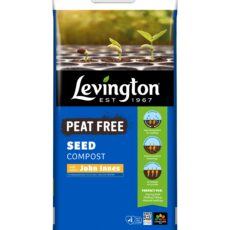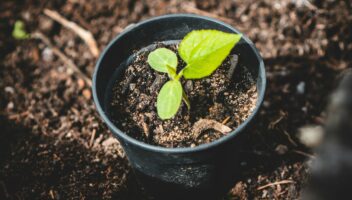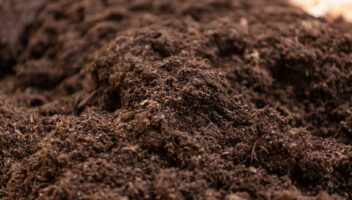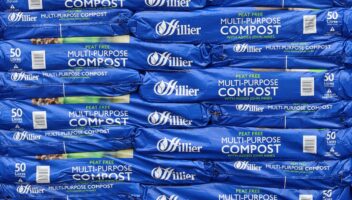Hillier spoke to gardening influencer, Ellen Mary, about peat-free and why it’s so important for gardeners to make the change. Here’s what she had to say on the subject:
The use of peat in horticulture has become a hot topic over the past few years, and rightly so, but there is still some ambiguity over what it means for everyone when using peat free compost, why gardeners are being urged not to use it and how growers can ensure quality plants using peat free growing mediums. I’ve been growing in peat free compost for many years, and I’ve been really interested to see how the industry has been moving forwards without the use of peat, the many discussions about it and what governmental policies are being put in place. But first, if you’re wondering what peat is and why it is so important to protect peatlands, here’s my peat free gardening guide to help you grow peat free for thriving plants with the environment in mind:
What is peat and where does it come from?
Peat forms on peatland which refers to the peat soil growing on the surface of a type of wetland habitat. They are important to help with preventing climate change and preserving biodiversity, lowering the risk of flooding and ensuring safe drinking water. Peatlands can be found in almost every country, covering at least 3% of all global land surface.
In the UK alone, peatlands cover about 10 to 12% of land area and are some of the most protected areas not just for their natural beauty, but due to the rare or threatened plants and animal species that live there. In the past, the impact of removing peat for use in horticulture and other industries wasn’t understood so they have been left damaged and contributing to climate change.
I live in Norfolk near the Norfolk Broads which were in fact created by digging for peat many centuries ago. The extracted areas were flooded and now they are left untouched they are rich in biodiversity and one of the most beautiful places to visit!
Why is extracting peat an issue?
The vast majority of extracted peat is used for horticulture and as peatlands are some of the most carbon rich ecosystems on the planet, when peat is extracted greenhouse gas emissions are released which are responsible for 5% of global human CO2 emissions. They also provide homes to nesting and feeding birds, rare insects and plants.
Peatlands are the largest natural terrestrial carbon store, in fact they have more carbon stored than any other vegetation types in the world combined.
Why we shouldn’t be using peat for gardening
In the UK, there are 3 types of peatland – blanket bogs, raised bogs and fens. Commercial extraction is mainly on raised bogs to provide peat for gardening and one third of peat sold for horticultural use comes from UK peatlands. Amateur gardeners make up almost 70% of all peat users (as per Defra report 2010).
It is now well recognised that peat use is a huge climate problem and it simply isn’t needed to grow a thriving garden. There are products still available with peat included but if you keep a look out for composts that specifically say ‘peat free’ you know you’ll be using what’s best for the planet. Some products containing peat will be banned from sale in 2027 with some exemptions until 2030 but us gardeners can do without it already.
Hillier Nurseries do not use peat and grow upwards of one million plants for exclusive sale at Hillier Garden Centres and the online shop. All Hillier plants are potted in peat-free growing media and when they reach the garden centres are in beautiful condition. You can purchase the Hillier peat free compost in our centres.
What are the results of using peat free compost
There are peat free alternatives available and over the years these have improved vastly after some trial and error. Alternatives can include coir, bark, wood fibre and green waste compost.
The RHS conducted trials for peat free growing which can be found on their website and at Hillier Nurseries all plants grown are in peat free compost. The results are comparable to plants grown in peat which is really exciting!
Many sectors have gradually moved away from using peat at no detriment to the quality of plants grown.
What can you do in the garden
My peat free growing journey started accidentally many years ago when a friend gave me a bag of peat free compost. It felt really fibrous and I was unsure if it was good enough quality to grow on my seedlings. They were very slow to grow but they did catch up after I had planted them outside. After this, I researched what peat free meant and I have trialled just about every other growing medium than peat and throughout the years I have noticed how much better most peat free compost is now, and I have never had any issues growing peat free. My garden and allotment are abundant! It feels good to know that the food and flowers I grow are helping the environment and not taking from it which is a really important aspect of gardening for wellbeing as well.
The best thing us gardeners can do is to ensure any compost we buy is peat free. Also check if the plants you are buying have been grown and potted in peat free compost such as the ones at Hillier Nurseries and Garden Centres. You can also purchase the Hillier peat-free multi-purpose compost in their Garden Centres. Soil can be improved by adding in some well-rotted organic matter and making your own composts at home.
About the Author
Ellen Mary is a gardener, author and horticultural broadcaster who lives and breathes everything to do with plants and how they can improve quality of life.
She is a leading expert in wellbeing and in particular how nature and gardening can improve both physical and mental health. Ellen has been recognised as one of the Top 5 Women Influencers in Horticulture.
Ellen has previously given talks on wellbeing at events such as RHS Chelsea, hosts a horticultural radio show on Future Radio and co-presents The Plant Based Podcast. She has also appeared and presented on TV in the UK & USA. She started her career in HR before turning to her true passion, gardening. Having discovered first-hand the health and wellbeing benefits that plants can have from personal experience, Ellen shares advice tips, advice and commentary on the power of plants from a holistic point of view for health. As well as studying horticulture with the RHS, Ellen is trained in social and therapeutic horticulture, Cognitive Behavioural Therapy (CBT) and now wellness coaching. She has run workshops, given talks and led courses, webinars and talks on the subject. She now shares her knowledge by helping others through wellness coaching.
Ellen sees her relationship with plants and the natural world as a holistic bubble that has helped her to navigate difficult times in her personal life. With gardening, plant based eating and her allotment acting as a saviour for her.
Find her online:
Website: https://www.ellenmarygardening.co.uk/
Instagram: @ellenmarygardening
Facebook: https://www.facebook.com/ellenmarygardening1/
